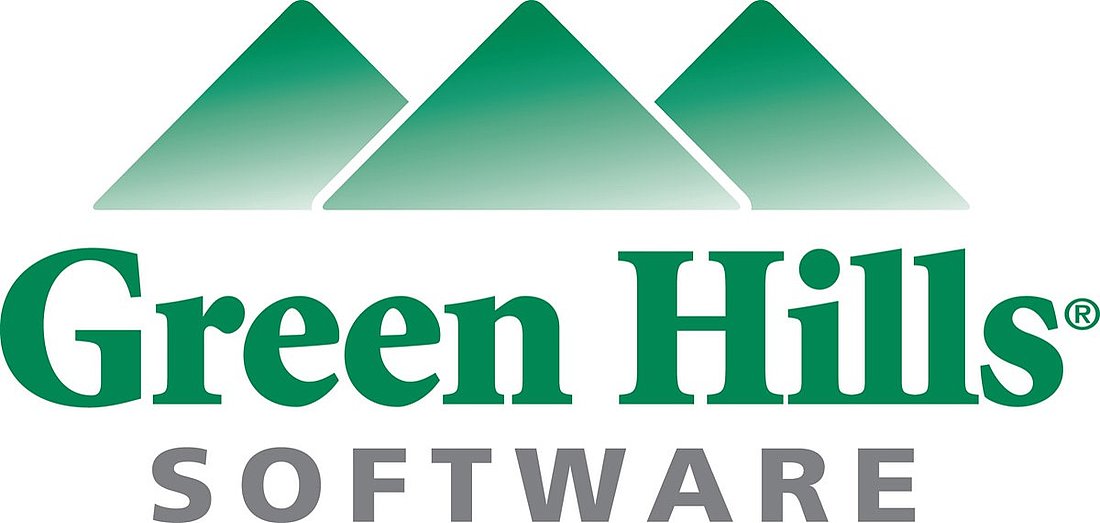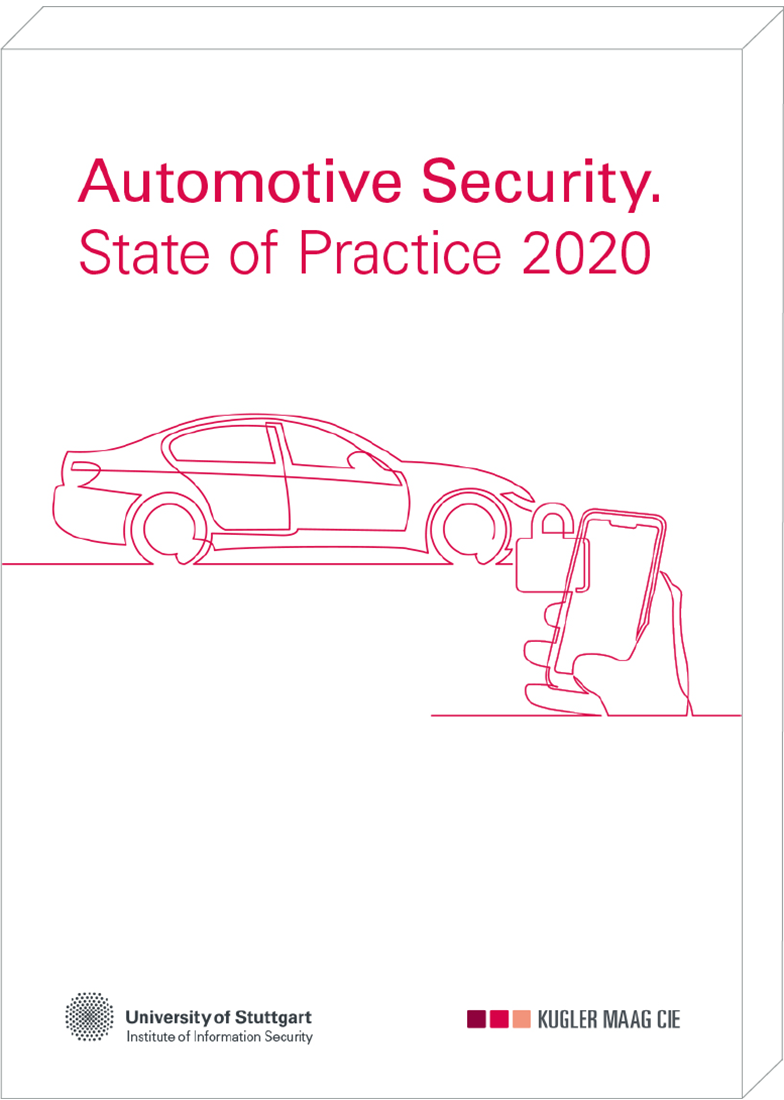AUTOMOTIVE-READY AT EVERY STEP @ GREEN HILLS SOFTWARE
Based in Santa Barbara, California, Green Hills Software describes itself as a leading vendor of functional safety and cybersecurity in the field of embedded software – a fitting profile given the company’s dominant position in real-time operating systems. For several years, Kugler Maag Cie’s experts have been working closely with Green Hills as it secures its foothold in the automotive market in order to ensure that its process landscape adheres fully to industry requirements.

Green Hills Software came to the market with unique expertise and an agile mindset acquired in industries subject to totally different regulations compared to the automotive sector. To ensure Green Hills adheres to automotive requirements, Kugler Maag Cie helped it establish an integrated development life cycle along with corresponding structures. Not only will this help the company expand its business, but it also enables it to respond to different market requirements. In doing so, the integrated process landscape combines the requirements of:
- Process maturity according to Automotive SPICE®
- Functional safety (ISO 26262)
- Cybersecurity (ISO 21434 according to UNECE R.155)
Each of the four project stages was underpinned by regular audits and assessments so that success could be quantified and adjustments made if necessary. The findings of each inspection were directly incorporated into implementation measures during the next project phase.
THE NORTH AMERICAN PERSPECTIVE
This summer has seen a whirlwind of activity, with many areas of business picking up momentum again. Probably the area of highest growth has been cybersecurity, as manufacturers and suppliers alike strive to prepare for the impending enforcement of UNECE regulations next year. Companies have become proactive and sought help not only with auditing but also with implementing improvements. In addition to the integration of new cybersecurity management systems (CSMS), this has touched on the methods applied to companies’ engineering policies, with an increasing focus on the traditional aspects that support the remaining areas of ISO 21434 – e.g. software update management systems (SUMS). Interestingly, this has included deep dives into areas that some corporations mastered a long time ago – such as configuration management and systems engineering – as they realized that such development foundations constitute an important bedrock upon which security (and safety) must be built. As such, the impending regulations have unearthed significant demand for help – customers want to get fit rather than risk revenue.
The summer of 2021 also marked the successful hosting of Gate4SPICE, which focused on effective modeling with the Automotive SPICE model. A variety of presentations took place, followed by group discussions, all in a pleasant outdoor setting that was literally a breath of fresh air on a fascinating topic. We are co-organizing the next North American Gate4SPICE on October 14. This time it will be held at IBM in downtown Detroit. More soon!
Another change we’ve witnessed this year is that companies have been budgeting next year’s projects even earlier than normal. As was the case for 2020 and 2021, nervousness surrounding the pandemic and chip shortages has resulted in many companies deciding to wait and see what happens, shifting some budgets back into Q3 and Q4. Despite this, there are no indications that 2022 will be following the same pattern, and the more ambitious companies are already planning to hit the ground running in January. So, let’s keep up the pace…
The summer of 2021 also marked the successful hosting of Gate4SPICE, which focused on effective modeling with the ASPICE model. A variety of presentations took place, followed by group discussions, all in a pleasant outdoor setting that was literally a breath of fresh air on a fascinating topic. We are co-organizing the next North American Gate4SPICE on October 14. This time it will be held at IBM in downtown Detroit. More soon!
Another change we’ve witnessed this year is that companies have been budgeting next year’s finances even earlier than normal. As was the case for 2020 and 2021, nervousness surrounding the pandemic and chip shortages has resulted in many companies deciding to wait and see what happens, shifting some budgets back into Q3 and Q4. Despite this, there are no indications that 2022 will be following the same pattern, and the more ambitious companies are already planning to hit the ground running in January. So, let’s keep up the pace…
Steve Tengler
KUGLER MAAG CIE North America
Automotive Cybersecurity. State of Practice 2020
Together with experts from leading car manufacturers and suppliers, Kugler Maag Cie conducted qualitative interviews to discuss the current state of cybersecurity in the car industry. In addition, the experts we talked to highlighted a number of areas where front-line staff working on projects will need further hands-on support to understand and apply cybersecurity requirements. Our report – Automotive Cybersecurity. State of Practice – builds directly on our assessment, providing practical help on key issues faced by the industry.

Automotive Cybersecurity. State of Practice is aimed at practitioners who face the day-to-day challenge of implementing cybersecurity requirements in line with project goals. The focus lies in continuous tasks, from planning the initial concept of a connected vehicle to its anticipated end of service. Based on extensive expert interviews, the report provides a variety of insights into the impact of security requirements, also demonstrating how requirements can be implemented on both an organizational and project level.
Get your copy
Kugler Maag Cie is accredited as a C-type inspection body by the German National Accreditation Body (DAkkS). Under this accreditation, we conduct functional safety assessments according to ISO 26262. As part of this, we check whether functional safety has been achieved by inspecting and evaluating the required evidence of activities. This assessment can take place at various stages of the safety life cycle, covering key activities completed and in progress up to that point. The FSA incorporates the results of the safety management system audit.
DIN EN ISO/IEC 17020:2012, Kugler Maag Cie successfully demonstrated its expertise in conducting inspections in the following areas of automotive functional safety: systems, components, hardware, and software. Kugler Maag Cie is accredited accordingly under the number D-IS-21267-01. Subsequent to the formal accreditation process under dent inspection body, you can trust in our services as part of your functional safety activities. As an independent inspection body, you can trust in our services as part of your functional safety activities.
A demanding market
Ask if Chinese automotive clients are the fastest-changing customers in the world and Kugler Maag will reply YES.
Ask if Chinese automotive companies are the fastest when it comes to product launches and Kugler Maag will reply YES.
Ask if Chinese car companies only develop cheap ECUs and Kugler Maag Cie will say NO.
Domestic carmakers are undoubtedly among the most demanding customers – they know the magic triangle of project management, but they don’t bother with it. Price, quality, and lead times – they take it all. Good if you’re in the customer’s shoes; tough if you’re a supplier responsible for making things happen.
Yes, it has happened: China is now the world’s largest market for alternative drives – and for the next generation of connectivity.
Cars now span everything from pure and hybrid electric vehicles to intelligent connected cars. So, the future is rolling forward nicely on Chinese roads. To drive this development, Chinese manufacturers are recruiting large numbers of software engineers.
With our subsidiary in Shanghai, the Kugler Maag Cie Group is right in the thick of the action when it comes to Chinese E/E developers. This is where Automotive integrated Development comes into play: Rigid engineering becomes a prerequisite for future-oriented engineering. But why? The answer is obvious: You save time and money by getting your tasks done at the right time. Better yet, you know the non-functional requirements of industry standards in advance. Of course, the very best way to do this is to design your system architecture with scalability and implementation of the unknown in mind. As we see with our Chinese customers, AiD allows you to anticipate relevant development phases so you can incorporate required actions into your planning and, if necessary, into your system architecture.
Kailai Sun
KUGLER MAAG CIE China
Is open source in need of a can opener?
Many people are already familiar with the phrase »open source is eating the world«. Although this describes the way open source impacts many aspects of modern life, it’s especially pertinent to product development. But does it also apply to the automotive industry? Does the industry really need free and open-source software (FOSS) – and if so, does FOSS need a can opener to get into the aluminum/steel/composite cans we call cars?
To find out, we’ve spent recent months designing and conducting a State of Practice survey. The idea was to identify the current state of open-source use, contributions to open source, and how it’s managed in the automotive industry. Above all, we’re interested in the discrepancy between bold press releases on this topic and the impression that few automotive companies seem to be actively contributing to open-source projects. What’s going on?
Through in-depth interviews with (open source) software experts at manufacturers, tier 1 ... n, and industry outsiders, our starting point was an assessment of the current situation. Next, we looked into the future and asked what potential the interviewees foresee for FOSS in the automotive industry.
Our industry has its own set of constraints. There are strict functional safety standards (ISO 26262) and a general state of development (Automotive SPICE®). At first glance, some FOSS projects and methods seem to contradict these systematic requirements. In addition, intense high pressure in the industry to comply with regulations and warranty obligations overlaps with a traditional tendency among industry incumbents to protect their intellectual property. Together, this creates a tough playing field. How will FOSS deal with these constraints and established business models? Will FOSS even challenge them?
As is so often the case, the initial answer is: possibly, but it’s not that simple. You will read the full story in our report scheduled for November 2021. In the next issue of Concepts, we will provide you with more details and your ordering options.
Teaching old dogs new tricks – that’s how you could sum up the business of Kugler Maag Cie. However, to be leader of the pack it means we also have to teach ourselves new tricks. We have to try out new techniques, evaluate them, and finally learn how to apply them in order to fulfill our own ambition, which is to pass on our knowledge to others, as comprehensibly as possible. To see some of the results of our continuous learning experiences for yourself – at any time and free of charge – try out our Video Campus on YouTube. Our channel offers a variety of smart tutorials, most filmed as entry-level videos on cybersecurity, functional safety, and Automotive SPICE®.
Our experts offer a variety of concisely presented key insights, underpinned by useful animations to lighten up the topic. Let’s be honest: When was the last time you watched an interesting, vivid, and fun presentation on a dull engineering topic?
Until now we’ve posted twenty videos on our Campus Channel, with new ones added every month.
